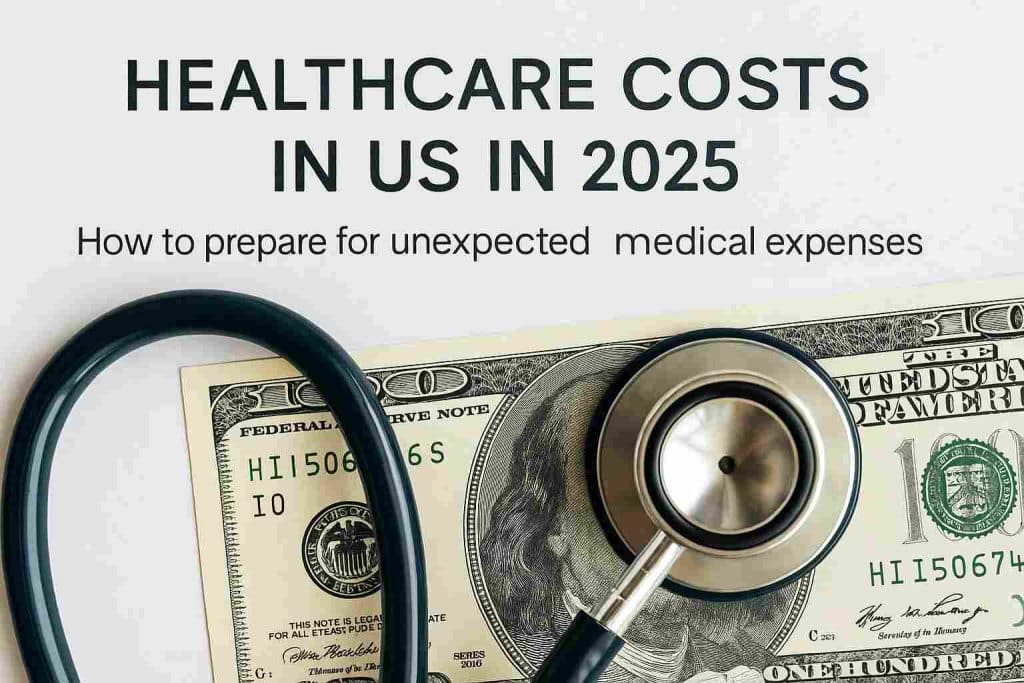In the ever-evolving landscape of healthcare, preparing for unexpected medical costs in the United States by 2025 is more crucial than ever. Understanding how to manage your finances is essential to ensure you and your family are protected from sudden, unforeseen expenses.
The complexity of medical pricing and insurance plans often leaves individuals puzzled, making it challenging to create an effective financial safety net. In this blog post, we will explore strategies and insights to help you navigate and anticipate healthcare expenses, safeguarding your financial well-being.
Navigating the future of healthcare expenses

Healthcare expenses in the US have been a growing concern, and by 2025, they are anticipated to further increase. Understanding the trends and factors influencing these costs is crucial for effective preparation. Rising prices are driven by technological advancements, increased demand for services, and an aging population with greater medical needs.
The increasing complexity of medical billing and the disparity between insured and out-of-pocket costs make it essential to understand the intricacies of your healthcare plan. Examine your coverage options, premiums, and deductibles meticulously. Additionally, take advantage of preventive care benefits and use health savings accounts to your advantage.
Proactive steps to shield your household budget
Taking proactive steps is the cornerstone of managing unforeseen medical bills. Start by reviewing your current healthcare plan annually. Understanding the specifics of your coverage, including emergency care and specialist visit stipulations, prepares you for potential needs.
Additionally, familiarize yourself with common medical procedures and their associated costs. This knowledge can serve as a reference point, allowing you to better negotiate or discuss costs with healthcare providers. Understanding the cost breakdown of various services not only informs you about potential expenses in advance but also empowers you to make more cost-effective healthcare choices.
Enhancing your financial planning skills for healthcare
Effective financial planning goes beyond just setting aside savings for potential medical expenses. It involves actively engaging with resources that deepen your understanding of finances related to healthcare. By investing time in learning about different insurance plans, discounts, and government assistance programs, you can significantly ease any financial burdens brought on by unexpected medical needs in the future.
One practical approach is to stay updated on policy changes and healthcare innovations that may affect pricing or insurance coverage. Joining health forums, participating in webinars, or consulting a financial advisor specializing in healthcare can equip you with the latest information, enabling you to make informed decisions.
Implementing sound financial practices
Implementing sound financial practices begins with prioritizing savings and budgeting for health-related expenses. Establish a habit of tracking medical receipts, insurance claims, and costs associated with medication. This will help you monitor your spending patterns and make necessary adjustments to your budget.
Furthermore, regularly review and update your emergency healthcare plan. Life circumstances, such as a change in employment or income levels, might necessitate adjustments to your preparedness strategy. By adopting these financial practices, you keep a stronghold on your economic situation, ensuring resilience in the face of unexpected medical expenses.
Crafting a sustainable healthcare financial strategy
The key to handling unforeseen medical expenses in the rapidly-changing healthcare environment lies in crafting a sustainable financial strategy. Thorough exploration of insurance options, proactive budgeting, and continuing education on healthcare policies are integral components of this strategy. It’s essential to engage in regular financial check-ups to ensure your plan remains aligned with your health needs and financial capabilities.
Planning for unexpected healthcare costs demands foresight and discipline. By taking the time to implement these strategies, you will be better positioned to handle surprises without compromising your financial health. Ultimately, a well-prepared financial strategy empowers you to focus on well-being and recovery rather than financial stress, allowing you and your loved ones to navigate the future with confidence and ease.
